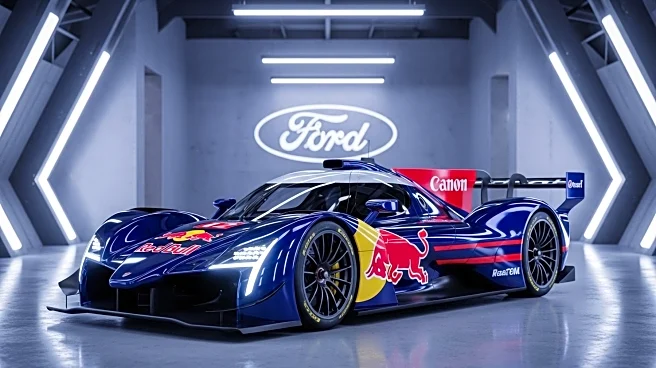What's Happening?
Max Verstappen is a key figure in Red Bull-Ford's 'Everest' project, aimed at developing a new power unit for the 2026 Formula 1 regulations. Ford CEO Jim Farley emphasizes Verstappen's importance to the project's success, highlighting his role in providing stability and technical input. Red Bull Powertrains and Ford have partnered to create an engine that could alter the competitive landscape in F1. Verstappen's contract with Red Bull extends until 2028, and his involvement in testing and development is crucial. Laurent Mekies, Red Bull's CEO, praises Verstappen's contributions beyond driving, including his work with engineers to optimize the car's performance.
Why It's Important?
The collaboration between Red Bull and Ford represents a significant shift in Formula 1, as they aim to challenge established manufacturers like Mercedes and Ferrari. Verstappen's involvement underscores the importance of driver input in technical development, potentially influencing the team's competitive edge. The project reflects the evolving dynamics in F1, where partnerships and innovation are key to success. The outcome of this collaboration could impact team standings, sponsorships, and the overall competitive balance in the sport. Verstappen's role highlights the intersection of driving skill and technical expertise in modern motorsports.
What's Next?
Red Bull-Ford will continue to develop their power unit, with Verstappen playing a central role in testing and feedback. The team will face challenges from experienced manufacturers, requiring strategic planning and innovation. The 2026 regulations will bring changes to F1, and Red Bull-Ford's success will depend on their ability to adapt and excel. Fans and stakeholders will watch closely as the project progresses, anticipating its impact on the sport. The partnership's success could influence future collaborations and technological advancements in Formula 1.










